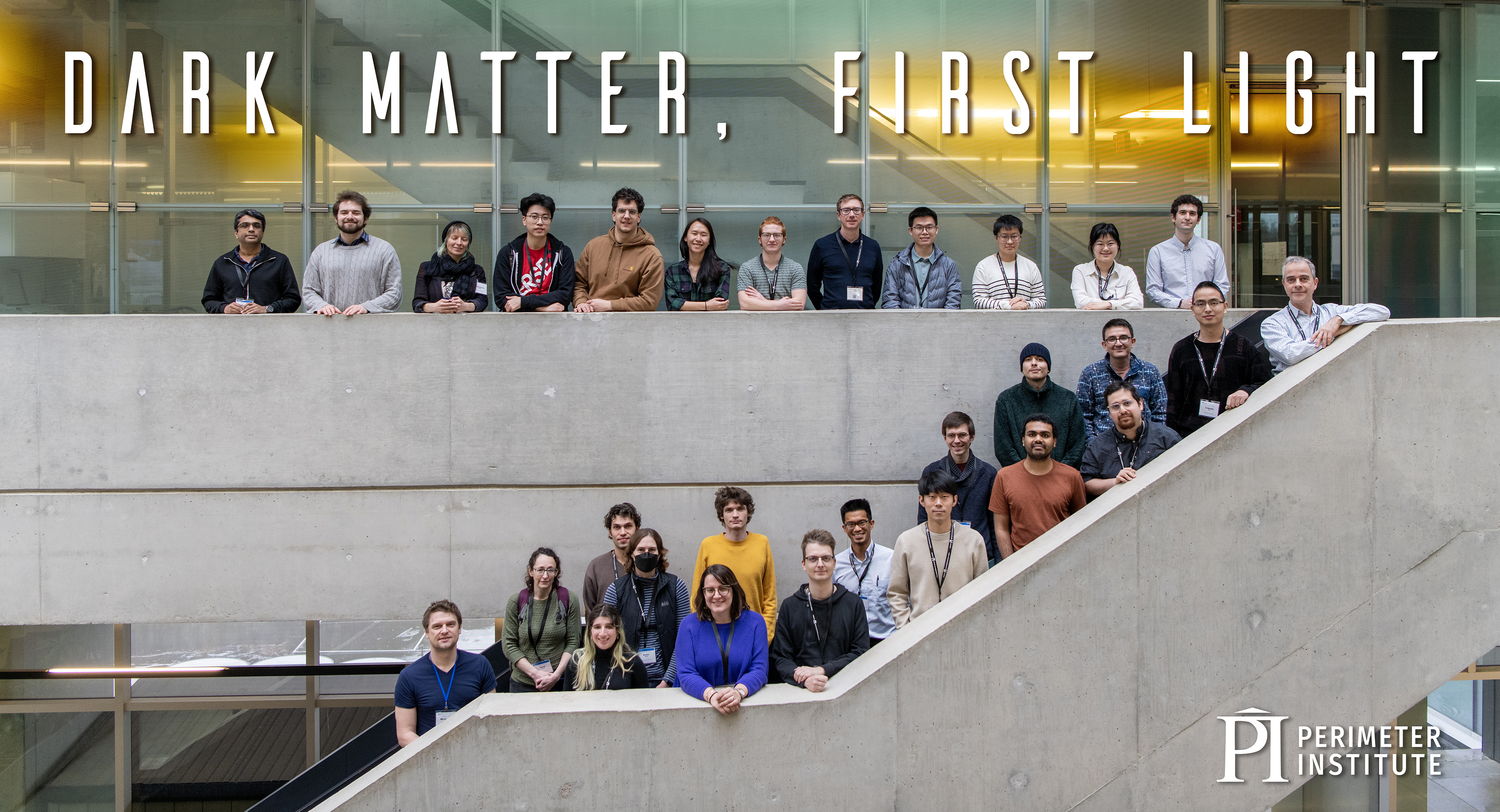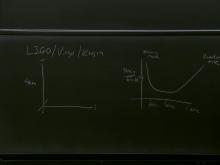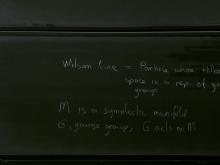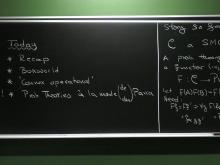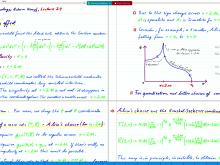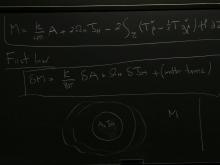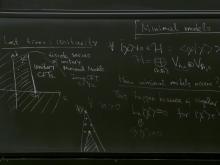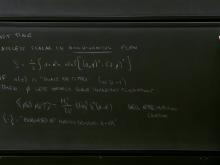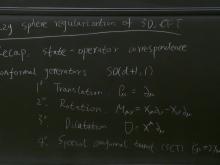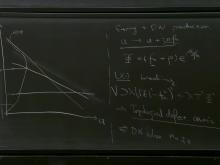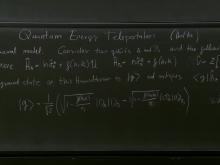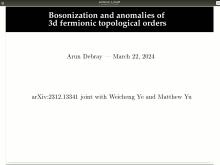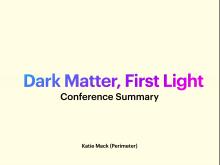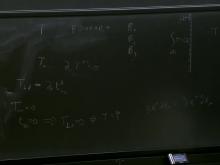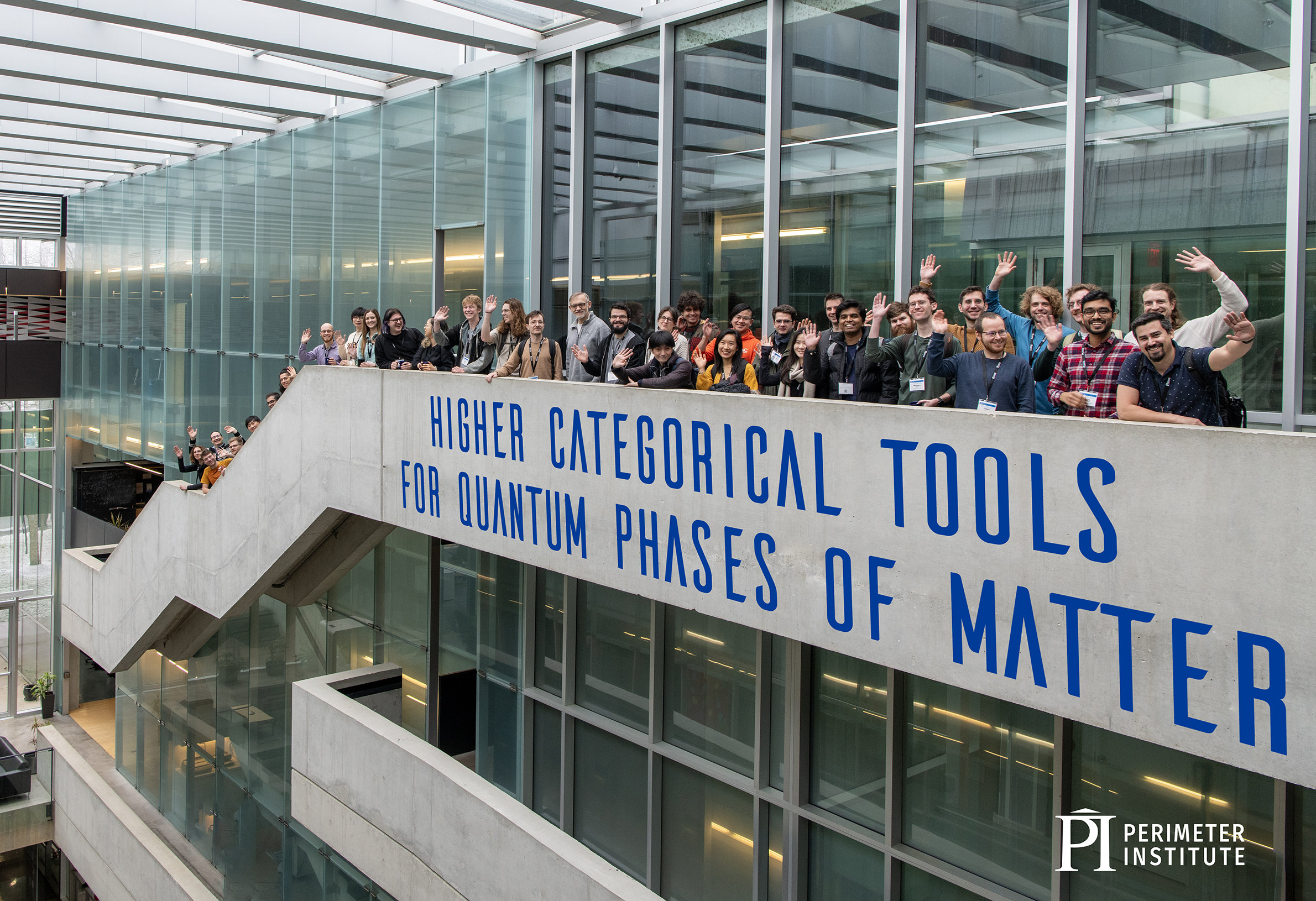Format results
-
13 talks-Collection NumberC24023
Talk
-

Strong Gravity Lecture
William East Perimeter Institute for Theoretical Physics
-

Strong Gravity Lecture
William East Perimeter Institute for Theoretical Physics
-

Strong Gravity Lecture
William East Perimeter Institute for Theoretical Physics
-

Strong Gravity Lecture
William East Perimeter Institute for Theoretical Physics
-

Strong Gravity Lecture
William East Perimeter Institute for Theoretical Physics
-

Strong Gravity Lecture
William East Perimeter Institute for Theoretical Physics
-

Strong Gravity Lecture
William East Perimeter Institute for Theoretical Physics
-

Strong Gravity Lecture
William East Perimeter Institute for Theoretical Physics
-
-
Mathematical Physics 2023/24
13 talks-Collection NumberC24026Talk
-

Mathematical Physics Lecture
Kevin Costello Perimeter Institute for Theoretical Physics
-

Mathematical Physics Lecture
Kevin Costello Perimeter Institute for Theoretical Physics
-

Mathematical Physics Lecture
Kevin Costello Perimeter Institute for Theoretical Physics
-

Mathematical Physics Lecture
Kevin Costello Perimeter Institute for Theoretical Physics
-

Mathematical Physics Lecture
Kevin Costello Perimeter Institute for Theoretical Physics
-

Mathematical Physics Lecture
Kevin Costello Perimeter Institute for Theoretical Physics
-

Mathematical Physics Lecture
Kevin Costello Perimeter Institute for Theoretical Physics
-

Mathematical Physics Lecture
Kevin Costello Perimeter Institute for Theoretical Physics
-
-
GPTs and the probabilistic foundations of quantum theory - mini-course
7 talks-Collection NumberC24021Talk
-

GPTs and the probabilistic foundations of quantum theory - Lecture
Alexander Wilce Susquehanna University
-

GPTs and the probabilistic foundations of quantum theory - Lecture
Alexander Wilce Susquehanna University
-

GPTs and the probabilistic foundations of quantum theory - Lecture
Alexander Wilce Susquehanna University
-

GPTs and the probabilistic foundations of quantum theory - Lecture
Alexander Wilce Susquehanna University
-

GPTs and the probabilistic foundations of quantum theory - Lecture
Alexander Wilce Susquehanna University
-

GPTs and the probabilistic foundations of quantum theory - Lecture
Alexander Wilce Susquehanna University
-

GPTs and the probabilistic foundations of quantum theory - Lecture
Alexander Wilce Susquehanna University
-
-
Quantum Field Theory for Cosmology (PHYS785/AMATH872)
24 talks-Collection NumberC24003Talk
-

Quantum Field Theory for Cosmology - Lecture 20240109
Achim Kempf University of Waterloo
-

Quantum Field Theory for Cosmology - Lecture 20240111
Achim Kempf University of Waterloo
-

Quantum Field Theory for Cosmology - Lecture 20240116
Achim Kempf University of Waterloo
-

Quantum Field Theory for Cosmology - Lecture 20240118
Achim Kempf University of Waterloo
-

Quantum Field Theory for Cosmology - Lecture 20240123
Achim Kempf University of Waterloo
-

Quantum Field Theory for Cosmology - Lecture 20240125
Achim Kempf University of Waterloo
-

Quantum Field Theory for Cosmology - Lecture 20240130
Achim Kempf University of Waterloo
-

Quantum Field Theory for Cosmology - Lecture 20240201
Achim Kempf University of Waterloo
-
-
Advanced General Relativity (PHYS7840)
24 talks-Collection NumberC24001Talk
-
QFT III 2023/24
13 talks-Collection NumberC24010Talk
-

QFT III Lecture
Jaume Gomis Perimeter Institute for Theoretical Physics
-

QFT III Lecture
Jaume Gomis Perimeter Institute for Theoretical Physics
-

QFT III Lecture
Jaume Gomis Perimeter Institute for Theoretical Physics
-

QFT III Lecture
Jaume Gomis Perimeter Institute for Theoretical Physics
-

QFT III Lecture
Jaume Gomis Perimeter Institute for Theoretical Physics
-

QFT III Lecture
Mykola Semenyakin Perimeter Institute for Theoretical Physics
-

QFT III Lecture
Mykola Semenyakin Perimeter Institute for Theoretical Physics
-

QFT III Lecture
Mykola Semenyakin Perimeter Institute for Theoretical Physics
-
-
Cosmology 2023/24
13 talks-Collection NumberC24013Talk
-

Cosmology Lecture
Kendrick Smith Perimeter Institute for Theoretical Physics
-

Cosmology Lecture
Kendrick Smith Perimeter Institute for Theoretical Physics
-

Cosmology Lecture
Kendrick Smith Perimeter Institute for Theoretical Physics
-

Cosmology Lecture
Kendrick Smith Perimeter Institute for Theoretical Physics
-

Cosmology Lecture
Kendrick Smith Perimeter Institute for Theoretical Physics
-

Cosmology Lecture
Kendrick Smith Perimeter Institute for Theoretical Physics
-

Cosmology Lecture
Kendrick Smith Perimeter Institute for Theoretical Physics
-

Cosmology Lecture
Kendrick Smith Perimeter Institute for Theoretical Physics
-
-
Quantum Matter 2023/24
13 talks-Collection NumberC24011Talk
-

Quantum Matter Lecture
Timothy Hsieh Perimeter Institute for Theoretical Physics
-

Quantum Matter Lecture
Timothy Hsieh Perimeter Institute for Theoretical Physics
-

Quantum Matter Lecture
Timothy Hsieh Perimeter Institute for Theoretical Physics
-

Quantum Matter Lecture
Yin-Chen He Perimeter Institute for Theoretical Physics
-

Quantum Matter Lecture
Yin-Chen He Perimeter Institute for Theoretical Physics
-

Quantum Matter Lecture
Yin-Chen He Perimeter Institute for Theoretical Physics
-

Quantum Matter Lecture
Yin-Chen He Perimeter Institute for Theoretical Physics
-

Quantum Matter Lecture
Yin-Chen He Perimeter Institute for Theoretical Physics
-
-
Particle Physics
12 talks-Collection NumberC24009Talk
-

Particle Physics Lecture
Asimina Arvanitaki Perimeter Institute for Theoretical Physics
-

Particle Physics Lecture
Asimina Arvanitaki Perimeter Institute for Theoretical Physics
-

Particle Physics Lecture
Asimina Arvanitaki Perimeter Institute for Theoretical Physics
-

Particle Physics Lecture
Asimina Arvanitaki Perimeter Institute for Theoretical Physics
-

Particle Physics Lecture
Asimina Arvanitaki Perimeter Institute for Theoretical Physics
-

Particle Physics Lecture
Asimina Arvanitaki Perimeter Institute for Theoretical Physics
-

Particle Physics Lecture
Junwu Huang Perimeter Institute for Theoretical Physics
-

Particle Physics Lecture
Junwu Huang Perimeter Institute for Theoretical Physics
-
-
Quantum Information 2023/24
13 talks-Collection NumberC24012Talk
-

Quantum Information Lecture
Eduardo Martin-Martinez University of Waterloo
-

Quantum Information Lecture
Eduardo Martin-Martinez University of Waterloo
-

Quantum Information Lecture
Eduardo Martin-Martinez University of Waterloo
-

Quantum Information Lecture
Eduardo Martin-Martinez University of Waterloo
-

Quantum Information Lecture
Eduardo Martin-Martinez University of Waterloo
-

Quantum Information Lecture
Eduardo Martin-Martinez University of Waterloo
-

Quantum Information Lecture
Eduardo Martin-Martinez University of Waterloo
-

Quantum Information Lecture
Eduardo Martin-Martinez University of Waterloo
-
-
Higher Categorical Tools for Quantum Phases of Matter
15 talks-Collection NumberC24016Talk
-

-

Analogies between QFT and lattice systems
Anton Kapustin California Institute of Technology (Caltech) - Division of Physics Mathematics & Astronomy
-

Models of anyons with symmetry: a bulk-boundary correspondence
Fiona Burnell University of Minnesota
-

Twisted Tools for (Untwisted) Quantum Field Theory
Justin Kulp Stony Brook University
-

Quantum double models and Dijkgraaf-Witten theory with defects
Catherine Meusburger -

Topological sectors in quantum lattice models
Clement Delcamp Institut des Hautes Etudes Scientifiques (IHES)
-

Douglas-Reutter 4d TQFT as a generalised orbifold
Vincentas Mulevičius Vilnius University
-

Weak Hopf symmetric tensor networks
Andras Molnar University of Vienna
-
-
Dark Matter, First Light
26 talks-Collection NumberC24015Talk
-

Opening Remarks
-
Katherine Mack Perimeter Institute for Theoretical Physics
-
Aaron Vincent Queen's University
-
-

Dark and visible structures with dissipative dark matter
Sarah Shandera Pennsylvania State University
-

-

-

The First Stars in the Universe as Dark Matter Laboratories
Cosmin Ilie Colgate University
-

Probing Atomic Dark Matter using Simulated Galactic Subhalo Populations
Caleb Gemmell University of Toronto
-

Dark matter at high redshifts with JWST
Julian Munoz The University of Texas at Austin
-

(Dark) Baryogenesis through Asymmetric Reheating in the Mirror Twin Higgs.
Andrija Rasovic University of Toronto
-
-
Machine Learning 2023/24
12 talks-Collection NumberC24027Machine learning has become a very valuable toolbox for scientists including physicists. In this course, we will learn the basics of machine learning with an emphasis on applications for many-body physics. At the end of this course, you will be equipped with the necessary and preliminary tools for starting your own machine learning projects. -
String Theory 2023/24
13 talks-Collection NumberC24025The course covers the basics of String Theory: bosonic strings, D-branes, a bit of superstrings.
-
GPTs and the probabilistic foundations of quantum theory - mini-course
7 talks-Collection NumberC24021Classical probability theory makes the (mostly, tacit) assumption that any two random experiments can be performed jointly. This assumption seems to fail in quantum theory. A rapidly growing literature seeks to understand QM by placing it in a much broader mathematical landscape of ``generalized probabilistic theories", or GPTs, in which incompatible experiments are permitted. Among other things, this effort has led to (i) a better appreciation that many "characteristically quantum" phenomena (e.g., entanglement) are in fact generic to non-classical probabilistic theories, (ii) a suite of reconstructions of (mostly, finite-dimensional) QM from small packages of assumptions of a probabilistic or operational nature, and (iii) a clearer view of the options available for generalizing QM. This course will offer a survey of this literature, starting from scratch and concluding with a discussion of recent developments.
Mathematical prerequisites: finite-dimensional linear algebra, ideally including tensor products and duality, plus some exposure to category theory (though I will briefly review this material as needed).
Scheduling note: There will be 5 lectures from March 12-26, then a gap of two weeks before the final 2 lectures held April 16 & 18.
Format: In-person only; lectures will be recorded for PIRSA but not live on Zoom.
-
Quantum Field Theory for Cosmology (PHYS785/AMATH872)
24 talks-Collection NumberC24003This course introduces quantum field theory from scratch and then develops the theory of the quantum fluctuations of fields and particles. We will focus, in particular, on how quantum fields are affected by curvature and by spacetime horizons. This will lead us to the Unruh effect, Hawking radiation and to inflationary cosmology. Inflationary cosmology, which we will study in detail, is part of the current standard model of cosmology which holds that all structure in the universe - such as the distribution of galaxies - originated in tiny quantum fluctuations of a scalar field and of space-time itself. For intuition, consider that quantum field fluctuations of significant amplitude normally occur only at very small length scales. Close to the big bang, during a brief initial period of nearly exponentially fast expansion (inflation), such small-wavelength but large-amplitude quantum fluctuations were stretched out to cosmological wavelengths. In this way, quantum fluctuations are thought to have seeded the observed inhomogeneities in the cosmic microwave background - which in turn seeded the condensation of hydrogen into galaxies and stars, all closely matching the increasingly accurate astronomical observations over recent years. The prerequisites for this course are a solid understanding of quantum theory and some basic knowledge of general relativity, such as FRW spacetimes.
https://uwaterloo.ca/physics-of-information-lab/teaching/quantum-field-theory-cosmology-amath872phys785-w2024
https://pitp.zoom.us/j/96567241418?pwd=U3I1V1g4YXdaZ3psT1FrZUdlYm1zdz09
-
Advanced General Relativity (PHYS7840)
24 talks-Collection NumberC24001Review of elementary general relativity. Timelike and null geodesic congruences. Hypersurfaces and junction conditions. Lagrangian and Hamiltonian formulations of general relativity. Mass and angular momentum of a gravitating body. The laws of black-hole mechanics.
Zoom: https://pitp.zoom.us/j/97183751661?pwd=T0szNnRjdUM2dENYNTdmRmJCZVF1QT09
-
-
QFT III 2023/24
13 talks-Collection NumberC24010This survey course introduces some advanced topics in quantum field theory and string theory. Topics may include anomalies, conformal field theory, and bosonic string theory and are subject to change depending on the topics covered in the TBD elective course.
-
Cosmology 2023/24
13 talks-Collection NumberC24013This Cosmology course will provide a theoretical overview of the standard cosmological model.
Topics will include: FRW universe, Thermal History, Inflation, Cosmological Perturbation Theory, Structure Formation and Quantum Initial Conditions. -
Quantum Matter 2023/24
13 talks-Collection NumberC24011This course will cover quantum phases of matter, with a focus on long-range entangled states, topological states, and quantum criticality.
-
Particle Physics
12 talks-Collection NumberC24009This course will cover phenomenological studies and experimental searches for new physics beyond the Standard Model, including: naturalness, extra dimension, supersymmetry, grand unification, dark matter candidates (WIMPs and axions) and their detection.
-
Higher Categorical Tools for Quantum Phases of Matter
15 talks-Collection NumberC24016Quantum phases have become a staple of modern physics, thanks to their appearance in fields as diverse as condensed matter physics, quantum field theory, quantum information processing, and topology. The description of quantum phases of matter requires novel mathematical tools that lie beyond the old symmetry breaking perspective on phases. Techniques from topological field theory, homotopy theory, and (higher) category theory show great potential for advancing our understanding of the characterization and classification of quantum phases. The goal of this workshop is to bring together experts from across mathematics and physics to discuss recent breakthroughs in these mathematical tools and their application to physical problems.
Scientific Organizers
Lukas Mueller
Alex Turzillo
Davide Gaiotto
Sponsored in part by the Simons Collaboration on Global Categorical Symmetries
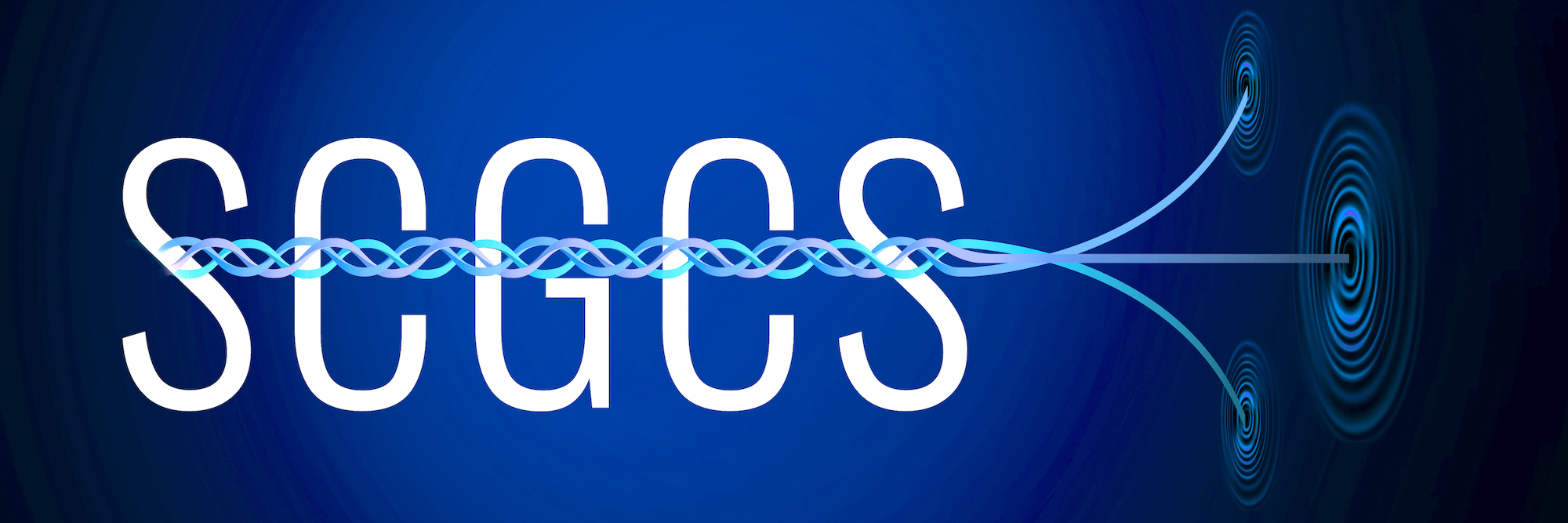
-
Dark Matter, First Light
26 talks-Collection NumberC24015New observational programs and techniques are opening a window to the first galaxies in the universe and bringing surprises along the way. In this workshop, we'll explore how dark matter phenomenology may have impacted the first stars and galaxies, focusing on how improved modeling and simulations can allow us to use new and upcoming high-redshift data to gain insight into dark matter's fundamental nature.
Sponsored in part by:

